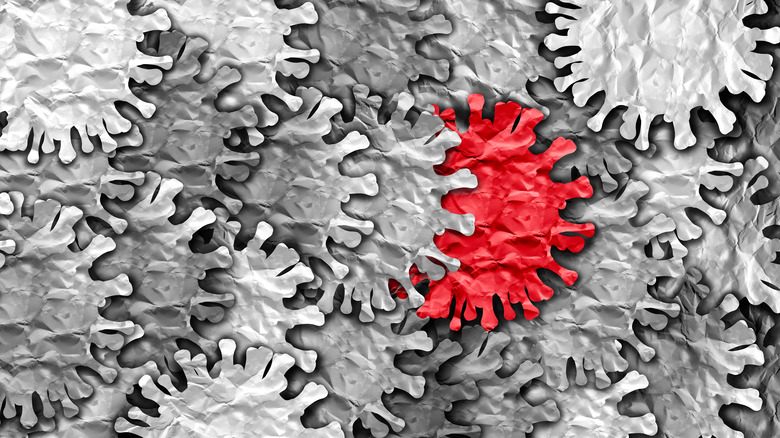Here's Why Monoclonal Antibodies Are No Longer A Go-To For COVID-19 Treatment
Monoclonal antibodies are laboratory-made proteins created to behave like our natural antibodies during an immune response (via Cleveland Clinic). Simply put, they assist the immune system by helping the body to identify and attack COVID virus cells. During the height of the pandemic, the U.S. Food and Drug Administration (FDA) approved the monoclonal antibodies casirivimab and imdevimab for emergency authorization use to help treat mild and moderate cases of COVID-19.
As COVID variants began to emerge, experts noticed that the monoclonal antibodies designed for the delta strain of COVID were losing their effectiveness. As far back as January 2022, reports surfaced about how monoclonal treatments were outdated in helping the body fight against the omicron variants of the virus. In fact, NBC News reports that public health officials were then expressing that they were "almost certainly useless." So, why is this the case?
Monoclonal antibodies can't attach to omicron antigens
NPR reports that it's the way monoclonal antibodies were created that turned out to be their weakness. Monoclonal antibodies were created to work against the specific strains of the COVID virus, however, with every new variant, the antibodies are unable to target the specific spike protein of the new virus. However, some researchers say monoclonal antibodies are still useful for certain individuals, like those with compromised immune systems and other vulnerable populations (per Stat News).
"Monoclonals had their day, like the Model T or the biplane," Carl Dieffenbach, director of the Division of AIDS at the National Institutes of Health, and lead for the NIH's Antiviral Program for Pandemics, told NPR, adding that it was "time to move on." But that doesn't mean it's the end of this type of treatment. NPR reports that researchers are looking for ways to improve monoclonal treatments.


